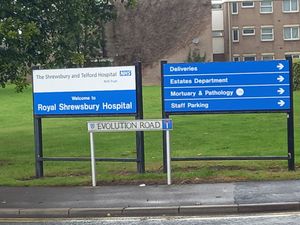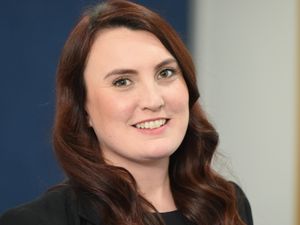NHS waiting list hits 7m for first time ever
Trolley waits in A&E have also risen as beds need to be found.
The NHS waiting list for treatment has hit seven million people for the first time ever, as A&E trolley waits also hit a record high.
New data from NHS England shows there were seven million people waiting to start routine hospital treatment at the end of August.
This is up from 6.8 million in July and is the highest number since records began in August 2007.
Meanwhile, the number of people enduring long trolley waits – referring to the time spent in A&E before people are found a bed on a hospital ward – has also risen.

The number waiting more than 12 hours in A&E departments in England from a decision to admit them to actually being admitted hit 32,776 people in September.
This is up from 28,756 in August and is the highest number in records going back to August 2010.
The number waiting at least four hours for a bed stood at 131,861 in September, up from 130,528 the previous month but below the peak of 136,298 reported in March.
A total of 71% of patients in England were seen within four hours at A&Es last month, the joint-worst performance on record, set against a target of 95%.
NHS England said delays discharging patients into the community and social care is impacting how many free beds are available, with only an average of 40% of patients discharged when they were ready in September.
Elsewhere, a total of 387,257 people had been waiting more than 52 weeks to start hospital treatment at the end of August.
This is up from 377,689 at the end of July, and is the equivalent of one in 18 people on the entire waiting list.
The Government and NHS England have set the ambition of eliminating all waits of more than a year by March 2025.
The data showed there has been progress on 18-month waits – they are down by more than a quarter since the NHS launched its elective recovery plan in February and now stand at 50,888 people.
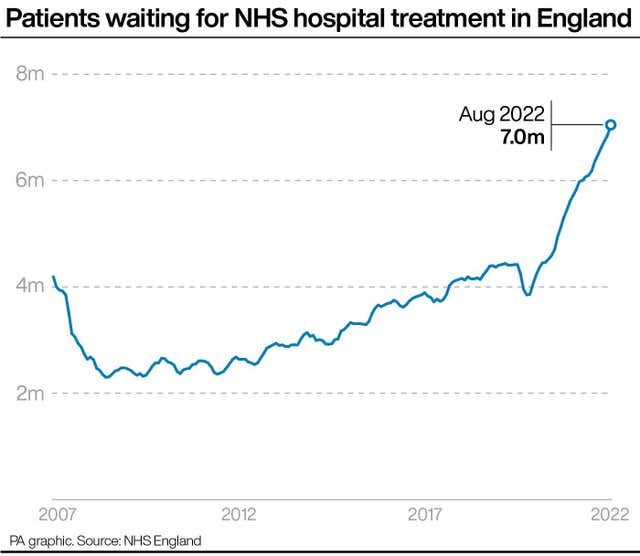
Siva Anandaciva, chief analyst at The King’s Fund think tank, said: “NHS services are facing a range of really serious challenges which impact on patients and the quality and timeliness of care they receive – including crumbling buildings and outdated equipment, long waiting lists for care, high levels of Covid-19, and growing staff shortages.”
The NHS England figures showed a record 255,055 urgent cancer referrals were made by GPs in England in August, the highest monthly total in records going back to 2009.
However, only 75.6% of patients in England saw a specialist within two weeks that month against a 93% target, the second-worst performance on record.
Some 69.5% of patients urgently referred for suspected cancer were diagnosed or had cancer ruled out within 28 days in August, down slightly from 71.1% the previous month and the second-worst performance in records going back to April 2021.
The elective recovery plan sets a goal of March 2024 for 75% of patients who have been urgently referred by their GP for suspected cancer to be diagnosed or have cancer ruled out within 28 days.
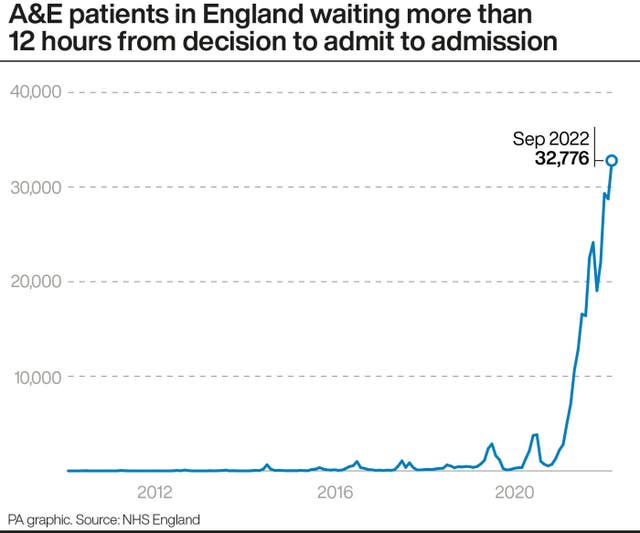
The number of people in England waiting longer than six weeks for a key diagnostic test has also risen to its highest level since the early stages of the pandemic.
Some 461,400 patients – 30.5% of the total – were waiting longer than six weeks for one of 15 standard tests in August, including an MRI scan, non-obstetric ultrasound or gastroscopy.
This is up from 424,605 the previous month and the highest number waiting since August 2020 when 472,517 patients had been waiting longer than six weeks.
When it comes to ambulance response times, the average response time in September for the most urgent incidents, defined as calls from people with life-threatening illnesses or injuries, was also up – to nine minutes and 19 seconds.
Analysis by the BBC suggests the NHS is carrying out fewer operations and treatments than it was before Covid despite a push to boost capacity.
In the past year, an average of nearly 257,500 inpatient treatments, including hip and knee replacements, have been performed each month – 12% lower than the year before the pandemic, it said.
NHS England said monthly figures – comparing August 2022 with August 2019 – show a 4% rise in patients receiving treatment.
Responding to the overall figures, NHS England said the number of people receiving cancer treatment continues to be high, with well over 27,000 people starting cancer treatment in August.
The number of the most serious ambulance callouts in September (69,458) is also up by a fifth compared with before the pandemic (55,753 in September 2019), it said.
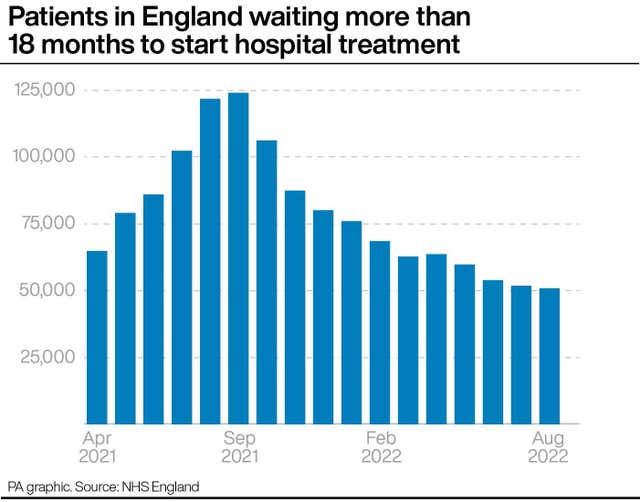
NHS national medical director Professor Sir Stephen Powis said: “Despite huge pressures on the NHS this summer, the incredible work of colleagues across the country meant that in August we delivered more potentially life-saving cancer checks than ever before, and cut 18-month waits by 60% over the last year.
“This was despite continued pressure from Covid patients in hospital, which has now risen to more than double the numbers seen in August, and more of the most serious ambulance callouts than before the pandemic.”
Shadow health secretary Wes Streeting said: “It is totally unacceptable for millions of people to be left waiting months or even years for treatment, often for painful and debilitating conditions.”
Liberal Democrat health spokeswoman Daisy Cooper said: “Behind these figures are countless human tragedies. In every corner of the country people are frightened, suffering and waiting in pain because our NHS can no longer cope.”

